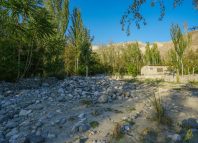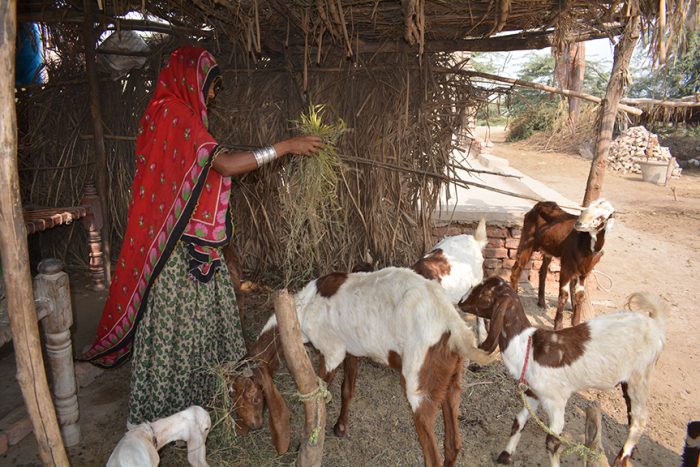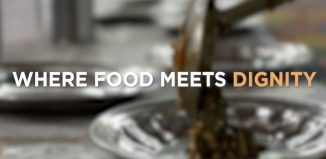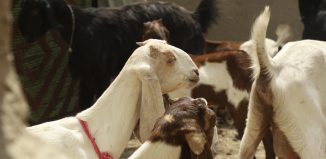Hope on Wheels: A Mobile Health Unit’s Impact on Laali’s Family
Laali, 25, lives in the remote village of Sohbat Khan Laghari, UC Dolatpur, Tehsil Shujabad, District Mirpurkhas, where life presents daily challenges, especially for someone with a physical disability. Laali has lived with a syndactyly disability since childhood, where the fingers of one hand are fused. This condition significantly impacts her ability to perform daily household chores. She struggles with tasks requiring fine motor skills, such as cooking or using small tools, and finds it challenging to carry or lift items with one hand. Activities that require both hands, like buttoning clothes, tying knots, or lifting heavier objects, are particularly difficult for her, further compromising her ability to manage routine responsibilities. For years, accessing healthcare was an uphill battle, with the nearest medical facilities located far away. Laali often had to endure long, costly journeys, covering expenses for travel, doctor visits, and medicines, or waiting weeks for even basic medical attention.
Laali is married and a mother to two young sons, her eldest is four-years-old, and the younger is two and a half. Unfortunately, she cannot afford to send them to school due to financial constraints. Her husband, Ramesh, works as a daily labourer, earning a modest PKR 400-500 (approximately USD 1.5 to 2), while Laali manages their household chores. They care for four rented goats, owned by someone else, in exchange for free milk—a small but vital support for their family.
The nearest healthcare facility is located approximately 20 kilometres from Laali’s village. She visited it once last year when her elder child fell ill with respiratory illness but found the experience deeply unsatisfactory. Despite being a government hospital, she had to purchase medicines worth around PKR 2,000 (approximately USD 7.3) rupees from outside the facility and spend an additional PKR 1,000 (approximately USD 3.7) on travel expenses. The hospital staff were unresponsive and inattentive, and the treatment provided was ineffective as her child did not recover. That visit was both her first and last to the government hospital.
Laali has also sought help from a private health clinic, but the cost was significantly higher. The visit, which included transportation, doctor’s fees, medical tests, and medicines, amounted to PKR 3,500 rupees (approximately USD 13). To cover these expenses, Laali had to borrow money from her brother. She observed little to no improvement in her child’s health despite visiting both government and private clinics, leaving her deeply dissatisfied.
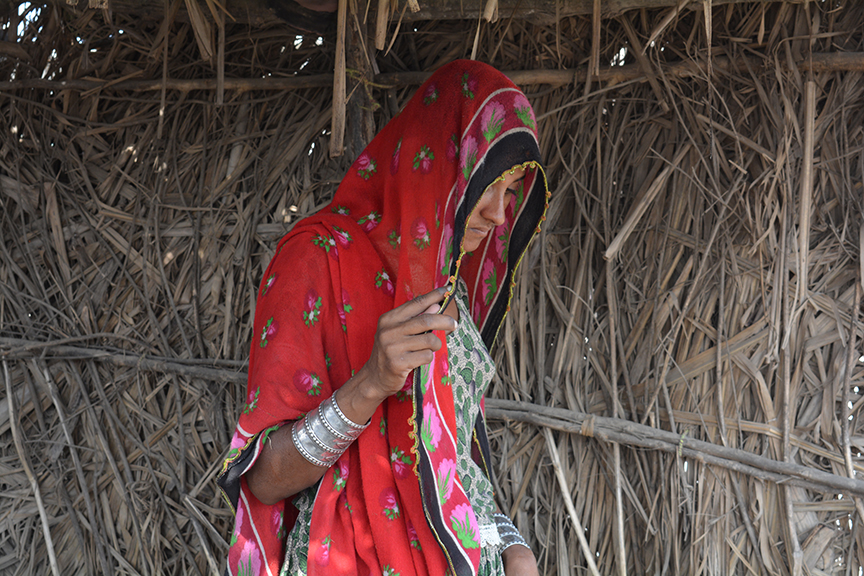
On August 15, 2024, Community World Service Asia (CWSA), with support from Catholic Agency for Overseas Development (CAFOD), brought two mobile health units in different villages of Mirpurkhas under a humanitarian and early recovery project, eventually coming to Laali’s village which was a milestone for the community. For the first time, residents had access to a team of dedicated healthcare professionals who set up a temporary clinic offering free check-ups, diagnostic services, and treatment advice. On the first day, a total of 206 people attended the mobile health unit. Among them, 146 patients (49 women, 9 men, and 106 children) received medicines.
When Laali visited the mobile clinic with her family, she was met with warmth and understanding. The staff listened attentively to her concerns, conducted thorough examinations of her children, and provided medication to relieve their cough and flu symptoms.
As part of the CAFOD project, the mobile health unit continues to conduct daily free camps across flood-affected villages in District Mirpurkhas until 31 January 2025. Between September 2023 and October 2024, the unit provided free consultations to 62,279 individuals (31,875 women, 6,948 men, 11,291 boys, and 12,165 girls) across 412 villages. Additionally, 445 persons with disabilities (PWDs) have been facilitated, ensuring inclusive and accessible healthcare for all. The Mobile Health Unit ensures priority care for PWDs and pregnant women. They are not required to wait in the general waiting area but are attended to immediately by the doctor. The unit is equipped with wheelchair access for PWD patients, and in cases where commuting proves challenging for them, the doctors personally visit their homes, bringing essential medicines along.
Laali and her family also participated in the Health Awareness Session conducted by a Lady Health Visitor (LHV) and a social mobiliser (woman). The session covered topics such as family planning, malaria, skin diseases, and cold and flu prevention. “The LHV explained the benefits of a small family, and I feel more confident now, understanding that a smaller family means fewer expenses and the ability to afford healthier food,” Laali shared.
She also learned about the importance of health and hygiene, particularly handwashing before and after meals. Inspired by the session, she began implementing these practices, including washing hands after using the restroom. Laali noticed an improvement in her family’s health as a result of these changes.
“Dr Misbah (Woman Medical Officer) diagnosed us, and LHV Stella guided us on how to use the prescribed medicines. The service was excellent, and my whole family was satisfied,” Laali said. She expressed her gratitude and requested that the mobile health unit return regularly to their village for follow-up medical camps. She also suggested including nutritional support for children, as her family currently manages only two meals a day, typically consisting of wheat and local vegetables.
“This service was a blessing,” Laali said, her eyes lighting up with gratitude. “They treated me with kindness and provided care I never thought I could receive so close to home.” The visit not only offered medical support but also restored Laali’s sense of hope. For the first time, she felt truly seen and supported. The team guided lifestyle changes and follow-up plans to improve her family’s health in the long term.
Now, Laali actively spreads the word about the mobile health unit, encouraging others in her village to seek the help they need and benefit from the life-changing services.




